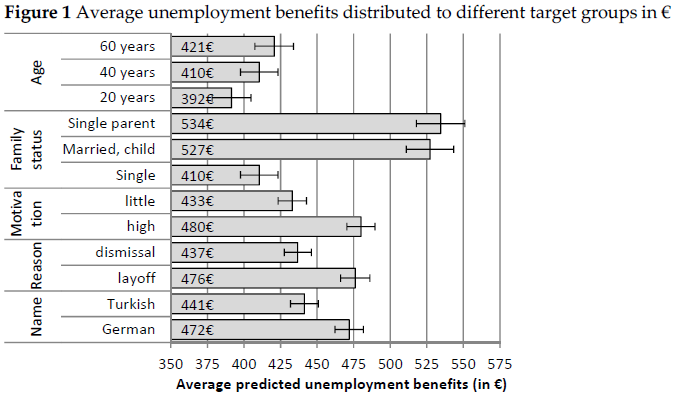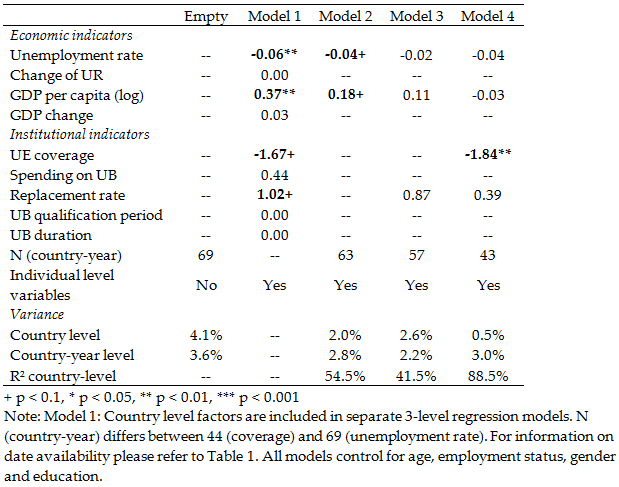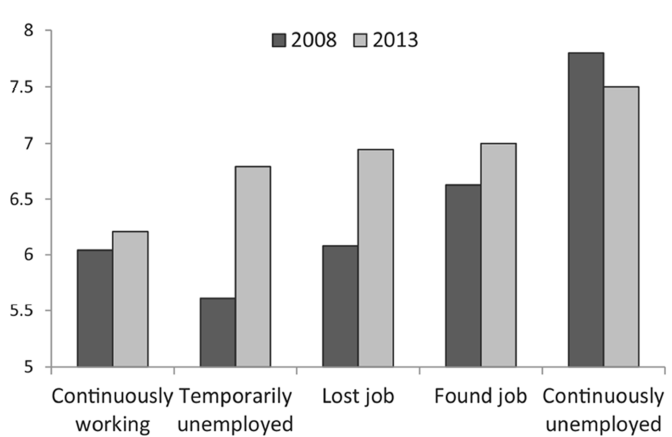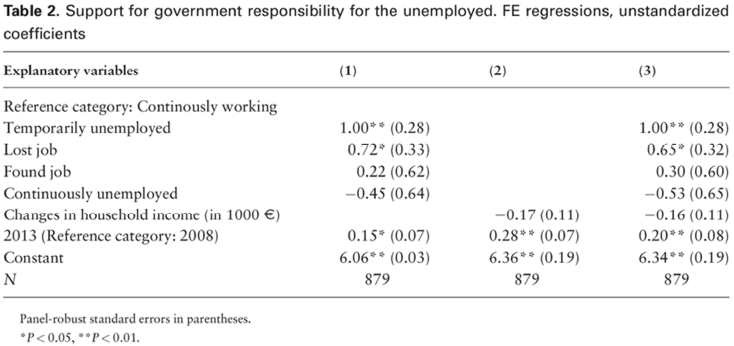Public Opinion towards Targeted Benefits for the Unemployed – a Vignette Study on Perceived Deservingness of Target Groups in Germany
Journal of European Social Policy, forthcoming
The issue of welfare targeting is back on the political agenda in European welfare states. Benefit recipients are subject to different rules, depending on age, family status and work. For instance, strict conditions and harsh sanctions apply in particular to young unemployed people. This article investigates public opinion towards welfare targeting in three policy areas – unemployment benefits, conditionality of benefits and sanctions – and utilises a factorial vignette experiment presented within a representative German survey. The results suggest strong support for welfare targeting. Respondents are more likely to offer generous benefits and fewer obligations and sanctions to unemployed people who are elderly, have caring responsibilities, are of German ethnicity and have high job seeking ambitions. The negative effect of foreign ethnicity is moderated by the ideological standpoint of the respondent, highlighting the mechanisms underlying welfare chauvinism. Accordingly, policy support strongly depends on the individual circumstances of the affected target group.



